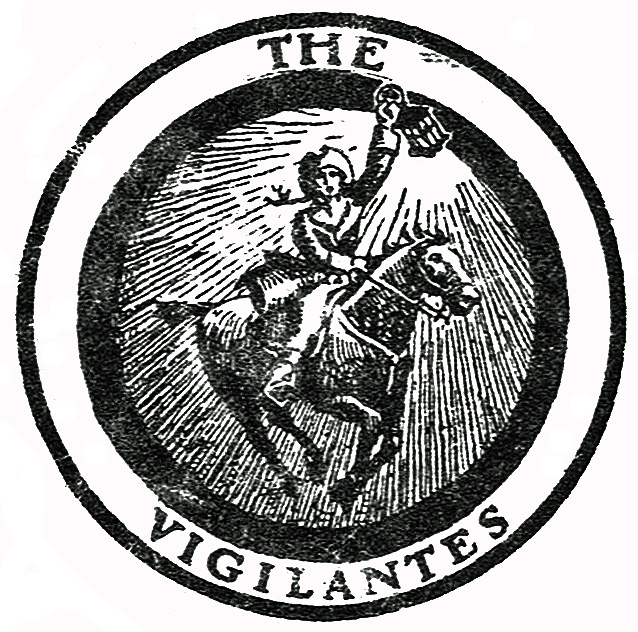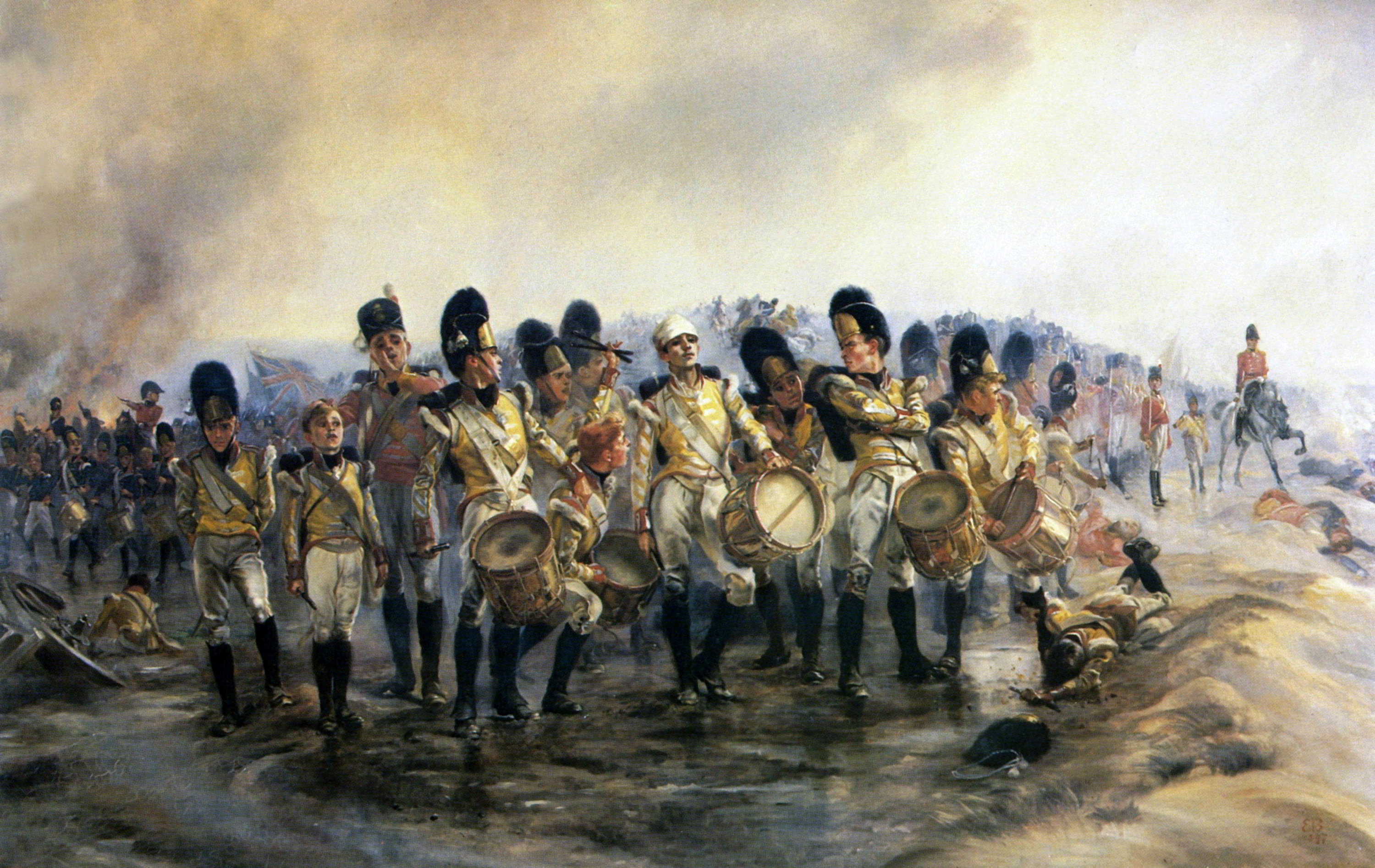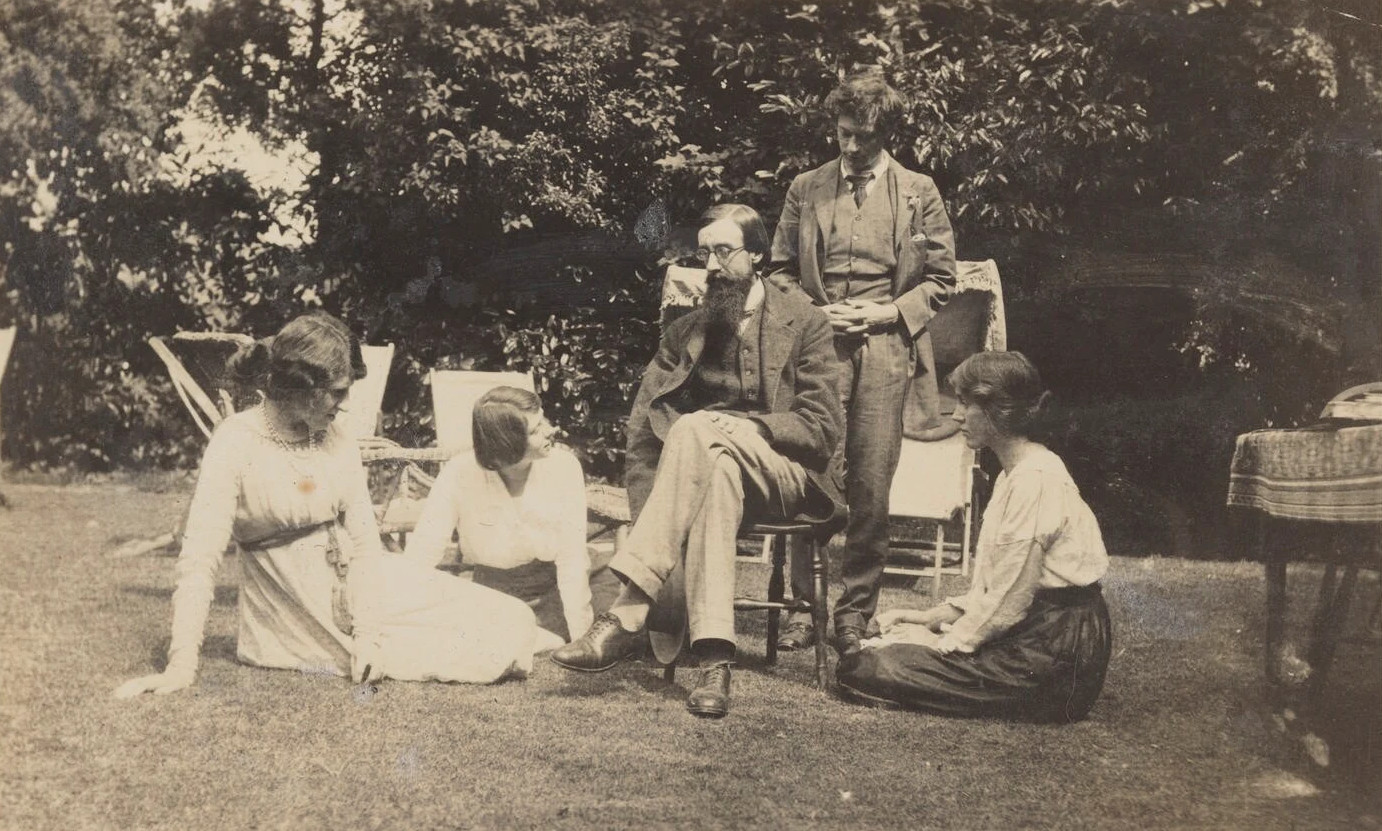|
The Vigilantes
The Vigilantes was a twentieth-century American publishing syndicate. Their pamphlets and newspapers were distributed with the intention of inspiring patriotism and Allied involvement in World War I. The membership was largely composed of men, who dominated its leadership, though much of the content was produced by women and appeared pseudonymously as the work of "the Vigilantes". A contemporary review noted the "breathless cries of song wrung mostly from the hearts of our women." The preface to a poetry anthology, published as Vigilantes Books: ''Fifes And Drums: A Collection of Poems of America at War'', gave the following remarks on the authors' works: These poems, written under the immediate stress of great events by those who have banded themselves together under the name of The Vigilantes, furnish a striking record of the emotional reactions of the American people during the fortnight preceding and the six weeks following the declaration of war....From the foreword of '' s:F ... [...More Info...] [...Related Items...] OR: [Wikipedia] [Google] [Baidu] |
Syndicate
A syndicate is a self-organizing group of individuals, companies, corporations or entities formed to transact some specific business, to pursue or promote a shared interest. Etymology The word ''syndicate'' comes from the French language, French word ''syndicat'' which means "trade union" (''syndic'' meaning "administrator"), from the Latin word ''syndicus'' which in turn comes from the Ancient Greek, Greek word σύνδικος (''syndikos''), which means "caretaker of an issue"; compare to ombudsman or Representation (politics), representative. Definition The ''Merriam Webster Dictionary'' defines syndicate as a group of people or businesses that work together as a team. This may be a council or body or association of people or an association of concerns, officially authorized to undertake a duty or negotiate business with an office or jurisdiction. It may mean an association of racketeers in organized crime. It may refer to a business concern that sells materials for publicat ... [...More Info...] [...Related Items...] OR: [Wikipedia] [Google] [Baidu] |
Allies Of World War I
The Allies of World War I, Entente Powers, or Allied Powers were a coalition of countries led by France, the United Kingdom, Russia, Italy, Japan, and the United States against the Central Powers of Germany, Austria-Hungary, the Ottoman Empire, Bulgaria, and their colonies during the First World War (1914–1918). By the end of the first decade of the 20th century, the major European powers were divided between the Triple Entente and the Triple Alliance. The Triple Entente was made up of France, Britain, and Russia. The Triple Alliance was originally composed of Germany, Austria–Hungary, and Italy, but Italy remained neutral in 1914. As the war progressed, each coalition added new members. Japan joined the Entente in 1914 and after proclaiming its neutrality at the beginning of the war, Italy also joined the Entente in 1915. The term "Allies" became more widely used than "Entente", although France, Britain, Russia, and Italy were also referred to as the Quadruple Entente ... [...More Info...] [...Related Items...] OR: [Wikipedia] [Google] [Baidu] |
World War I
World War I (28 July 1914 11 November 1918), often abbreviated as WWI, was one of the deadliest global conflicts in history. Belligerents included much of Europe, the Russian Empire, the United States, and the Ottoman Empire, with fighting occurring throughout Europe, the Middle East, Africa, the Pacific, and parts of Asia. An estimated 9 million soldiers were killed in combat, plus another 23 million wounded, while 5 million civilians died as a result of military action, hunger, and disease. Millions more died in genocides within the Ottoman Empire and in the 1918 influenza pandemic, which was exacerbated by the movement of combatants during the war. Prior to 1914, the European great powers were divided between the Triple Entente (comprising France, Russia, and Britain) and the Triple Alliance (containing Germany, Austria-Hungary, and Italy). Tensions in the Balkans came to a head on 28 June 1914, following the assassination of Archduke Franz Ferdin ... [...More Info...] [...Related Items...] OR: [Wikipedia] [Google] [Baidu] |
Fifes And Drums
A Corps of Drums, also sometimes known as a Fife and Drum Corps, Fifes and Drums or simply Drums is a unit of several national armies. Drummers were originally established in European armies to act as signallers. The major historical distinction between a military band and a corps of drums, was that 'drummers' were not employed to play their instruments to entertain or delight, but rather they carried out a utilitarian battlefield role. This role was fulfilled by trumpeters or buglers in the cavalry and the artillery, who did not form into comparative formed bodies in the way that drummers did; therefore, an orthodox corps of drums will exist in the infantry arm. History Instruments, particularly drums, have been used on battlefields as signalling devices since time immemorial across many different cultures. Most fife and drum traditions trace back to the Swiss mercenaries of the early Renaissance, and it is known that by the early 16th century, each company of infantry sol ... [...More Info...] [...Related Items...] OR: [Wikipedia] [Google] [Baidu] |
Anne Virginia Culbertson
Anne Virginia Culbertson (November 16, 1857 – December 7, 1918) was an American writer, known chiefly as the author of dialect poems, and as a public reader of her own productions. Culbertson attempted numerous dialects; however, her work was not confined to dialect alone; she also wrote a good deal of serious verse. Others writings included occasional short stories and articles to various publications including the ''Cosmopolitan'', '' Munsey's'', '' Pearson's'', the ''Puritan'', ''Outing'', ''Dixie'', the ''Ladies' Home Journal'', and prominent newspapers, such as the ''Boston Transcript'', ''The Washington Post'', and ''The Baltimore Sun''. Early life and education Anne Virginia Culbertson was born in Zanesville, Ohio, November 16, 1857. She came from a family prominently identified with Ohio. Her grandfather, the Rev. James Culbertson, came from Pennsylvania to Zanesville in the early part of the nineteenth century and for 30 years was recognized as an eminent and scholarly ... [...More Info...] [...Related Items...] OR: [Wikipedia] [Google] [Baidu] |
Literary Circles
A literary circle is a small group of students who gather together to discuss a piece of literature in depth. Famous or noteworthy examples include: * The Socrates School * The Bloomsbury Group * The Dymock Poets * The Algonquin Roundtable * The Inklings * Stratford-on-Odéon * The Factory * The El Floridita literary circle, which included Ernest Hemingway * The Mutual Admiration Society * The Whitechapel Boys * The Streatham Worthies * The Budh Sabha See also * Literary society A literary society is a group of people interested in literature. In the modern sense, this refers to a society that wants to promote one genre of writing or a specific author. Modern literary societies typically promote research, publish newsle ... References External links {{sisterlinks, d=Q105200145 Literary circles Literary societies ... [...More Info...] [...Related Items...] OR: [Wikipedia] [Google] [Baidu] |
Patriotic Societies
Patriotism is the feeling of love, devotion, and sense of attachment to one's country. This attachment can be a combination of many different feelings, language relating to one's own homeland, including ethnic, cultural, political or historical aspects. It encompasses a set of concepts closely related to nationalism, mostly civic nationalism and sometimes cultural nationalism. Some manifestations of patriotism emphasize the "land" element in love for one's native land and use the symbolism of agriculture and the soil – compare ''Blut und Boden''. Terminology and usage An excess of patriotism in the defense of a nation is called chauvinism; another related term is ''jingoism''. The English word 'Patriot' derived from "Compatriot," in the 1590s, from Middle French "Patriote" in the 15th century. The French word's "Compatriote" and "Patriote" originated directly from Late Latin Patriota "fellow-countryman" in the 6th century. From Greek Patriotes "fellow countryman," from ... [...More Info...] [...Related Items...] OR: [Wikipedia] [Google] [Baidu] |
Politics Of World War I
Politics (from , ) is the set of activities that are associated with making decisions in groups, or other forms of power relations among individuals, such as the distribution of resources or status. The branch of social science that studies politics and government is referred to as political science. It may be used positively in the context of a "political solution" which is compromising and nonviolent, or descriptively as "the art or science of government", but also often carries a negative connotation.. The concept has been defined in various ways, and different approaches have fundamentally differing views on whether it should be used extensively or limitedly, empirically or normatively, and on whether conflict or co-operation is more essential to it. A variety of methods are deployed in politics, which include promoting one's own political views among people, negotiation with other political subjects, making laws, and exercising internal and external force, including war ... [...More Info...] [...Related Items...] OR: [Wikipedia] [Google] [Baidu] |



_01.jpg)
